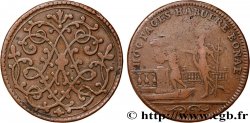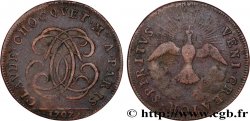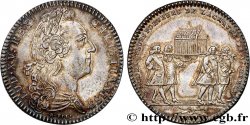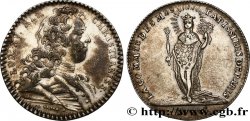fjt_058662 - CORPORATIONS Jeton AR 30, Société des propriétaires vignicoles Cognac 1838
120.00 €(Approx. 128.40$ | 102.00£)
Quantity
Add to your cart

Type : Jeton AR 30, Société des propriétaires vignicoles Cognac
Date: 1838
Metal : silver
Diameter : 30,5 mm
Orientation dies : 12 h.
Weight : 11,27 g.
Edge : lisse
Puncheon : (main) ARGENT
Rarity : R2
Obverse
Obverse legend : SOCIÉTÉ DES PROPRIÉTAIRES VIGNICOLES // COGNAC.
Obverse description : Une foi de deux mains jointes.
Reverse
Reverse legend : FONDÉE LE 28 JUILLET 1838 POUR 30 ANS.
Reverse description : Légende circulaire. Au centre, un navire à droite.
Commentary
Il s’agit certainement d’une société de secours mutuels, la bonne foi aux mains jointes étant un symbole récurent de ces sociétés. Le navire renforce l’idée d’assurance commune puisqu’il y a tout lieu de penser que la société avait été constituée pour couvrir les risques de naufrage lors de l’exportation d’alcool par voie maritime. Nous n’avons pas trouvé ce jeton dans le Gailhouste qui fait pourtant une large place aux sociétés de secours mutuels mais le jeton étant fort rare et ne portant pas spécifiquement les mots “secours mutuels” ou “assurance”, il est possible qu’il n’ait jamais été rencontré ou qu’il ait été laissé de côté.








 Report a mistake
Report a mistake Print the page
Print the page Share my selection
Share my selection Ask a question
Ask a question Consign / sell
Consign / sell
 Full data
Full data



